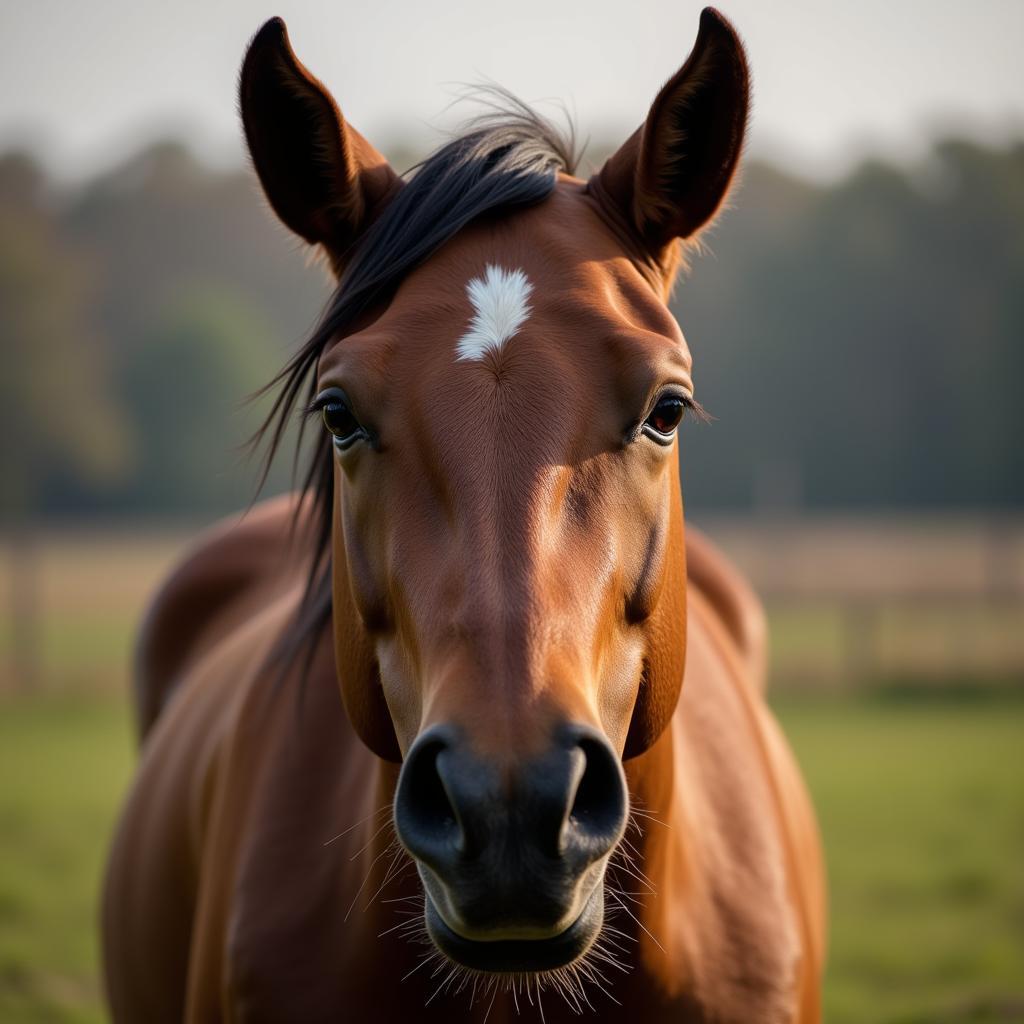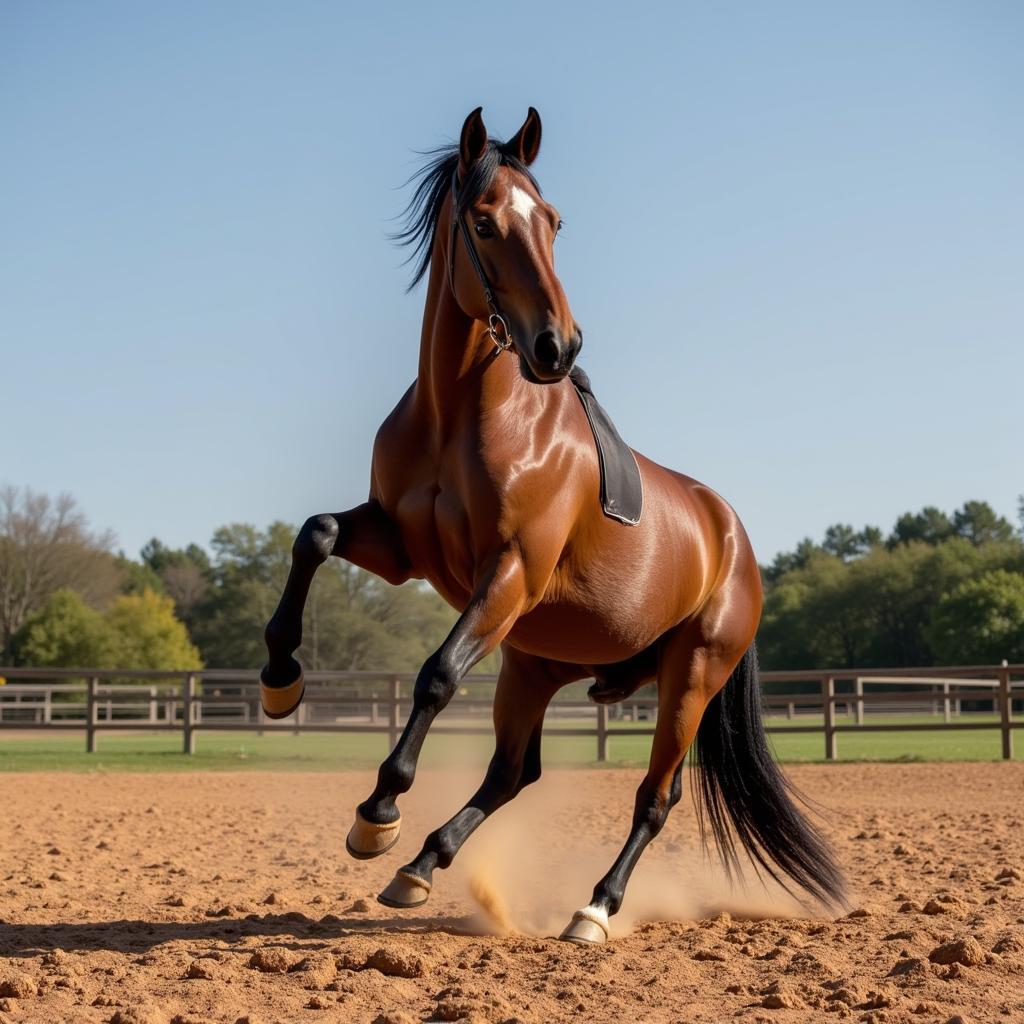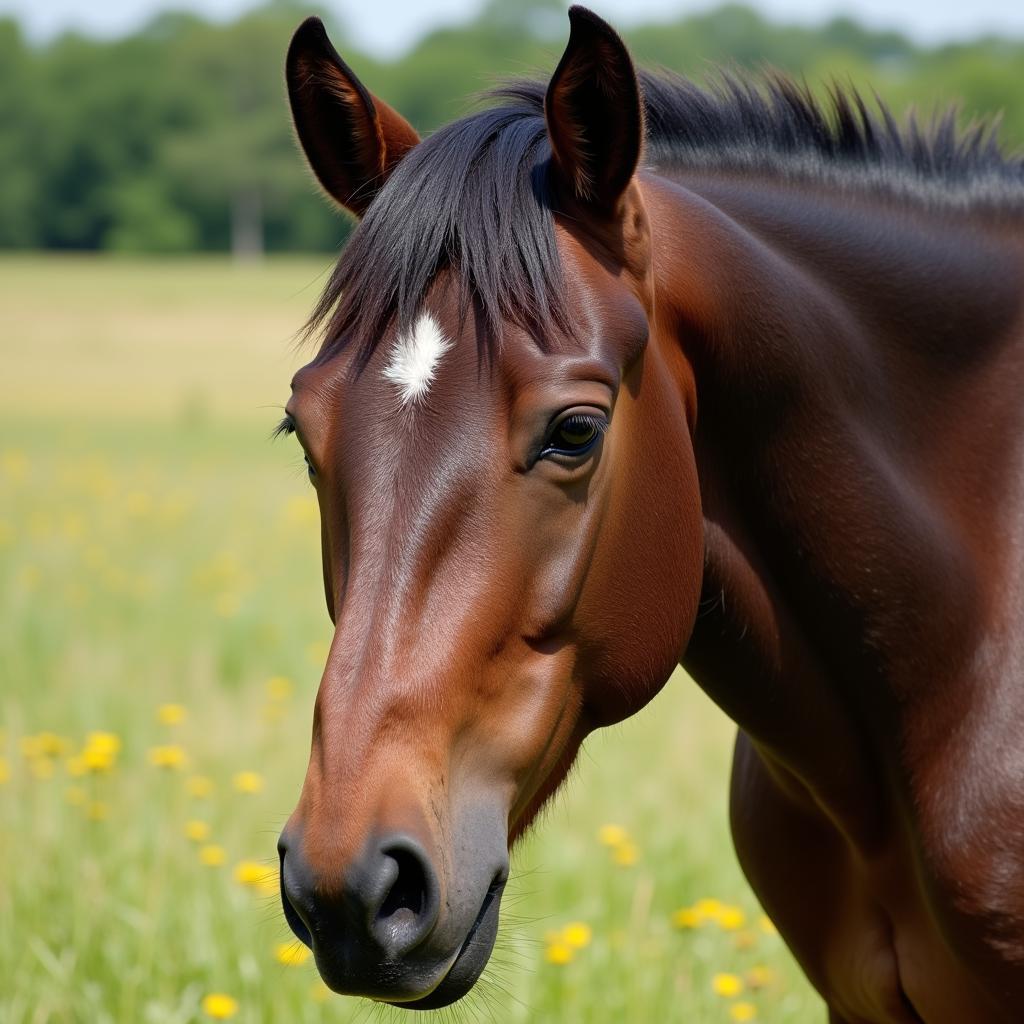“Got Stormy Horse?” might sound like a strange question, but for experienced horse owners, it perfectly captures those frustrating moments when your normally calm equine companion transforms into a bundle of nerves. Just like humans, horses experience anxiety, and understanding the triggers and management techniques is essential for their well-being and your safety.
 Horse showing signs of anxiety
Horse showing signs of anxiety
Decoding Equine Anxiety: What Makes a Horse “Stormy?”
Horses are prey animals, hardwired to react to potential threats. This instinct, while crucial for survival in the wild, can manifest as anxiety in domesticated settings. A “stormy” horse might be reacting to:
- Unfamiliar Situations: New environments, loud noises, or sudden movements can trigger fear and anxiety in horses.
- Social Stress: Changes in herd dynamics, separation from companions, or the introduction of new horses can cause stress.
- Pain or Discomfort: Underlying medical conditions or ill-fitting tack can lead to behavioral changes, including increased anxiety.
- Past Trauma: Horses, like humans, can experience long-lasting effects from negative experiences, making them more prone to anxiety in certain situations.
 Horse showing signs of stress during training
Horse showing signs of stress during training
Recognizing the Signs: How to Tell if Your Horse is Anxious
Horses communicate primarily through body language. Knowing how to interpret their signals is crucial for recognizing and addressing anxiety. Look out for:
- Ears: Pinned back or constantly moving
- Eyes: Wide, showing whites, or darting around
- Nostrils: Flared and snorting
- Head: Held high or shaking
- Tail: Swishing excessively or clamped down
- Body: Tense muscles, sweating, pawing the ground
If you notice these signs in your horse, it’s essential to remain calm and avoid any actions that might escalate their anxiety.
Weathering the Storm: Managing Equine Anxiety
Addressing the root cause of your horse’s anxiety is paramount. However, there are also several management techniques you can employ:
- Desensitization and Counter-Conditioning: Gradually introduce your horse to anxiety-inducing stimuli in a controlled environment, pairing it with positive reinforcement.
- Consistent Routine: Horses thrive on routine. A regular schedule for feeding, exercise, and turnout can help reduce stress.
- Appropriate Exercise: Regular exercise is crucial for both physical and mental well-being. Choose activities your horse enjoys and adjust the intensity and duration according to their fitness level.
- Calm and Assertive Handling: Horses respond best to calm and confident leadership. Avoid sudden movements or harsh corrections, which can exacerbate anxiety.
 Calm horse grazing peacefully in a pasture
Calm horse grazing peacefully in a pasture
Remember, managing a “stormy” horse requires patience, understanding, and a commitment to their well-being. If you are struggling to address your horse’s anxiety, consult with a qualified equine veterinarian or behaviorist to develop a tailored management plan.
Got a Stormy Horse? You’re Not Alone
Dealing with an anxious horse can be challenging, but remember that many owners face similar situations. By understanding the causes of equine anxiety, recognizing the signs, and employing appropriate management techniques, you can help your horse navigate their fears and enjoy a calmer, more relaxed life.
FAQs:
1. Can horses grow out of anxiety?
While some horses may naturally become calmer with age and experience, anxiety can stem from various factors, and early intervention is crucial for successful management.
2. Are certain breeds more prone to anxiety?
While any horse can experience anxiety, some breeds are known for their more sensitive temperaments, such as Thoroughbreds and Arabians.
3. When should I contact a veterinarian about my horse’s anxiety?
If your horse’s anxiety is severe, persistent, or if their behavior suddenly changes, it’s essential to consult with an equine veterinarian to rule out any underlying medical conditions.
Need More Help with Your Equine Friend?
Choosing the right name for your young female horse names is just one small step in horse ownership. At Justus Horses USA, we are dedicated to providing horse owners with the information and resources they need to provide the best possible care for their equine companions. For more advice on horse care, training, and management, browse our website or contact us directly.
Need immediate assistance?
Call: 0772127271
Email: [email protected]
Visit: QGM2+WX2, Vị Trung, Vị Thuỷ, Hậu Giang, Việt Nam.
We have a dedicated team available 24/7 to answer your questions and provide support.